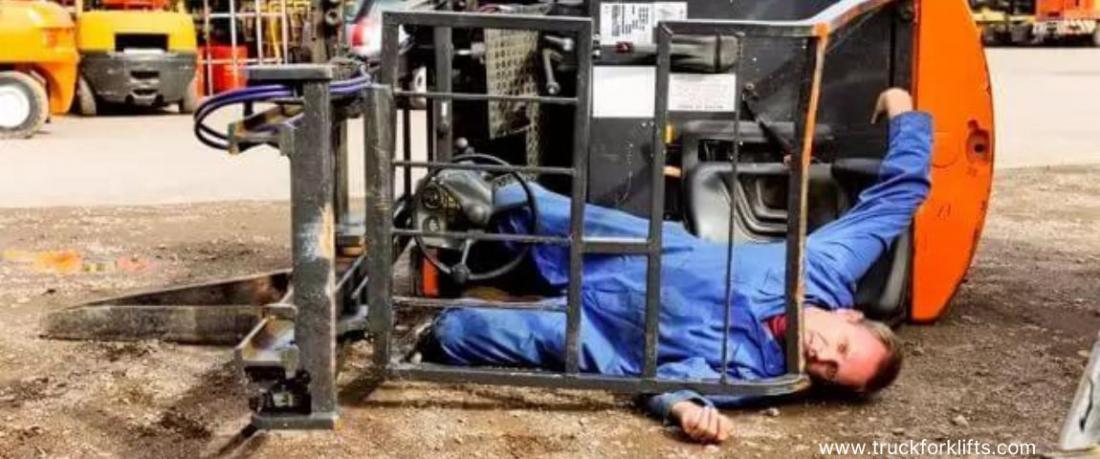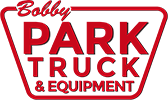Information Request
Need more information about one of our vehicles? Simply fill in the form below and we'll be in touch.
Rather Make a Phone Call?
(205) 759-4891We will be happy to meet your needs.
What is the Number One Cause of Lift Truck Accidents?

Lift trucks, commonly known as forklifts, are essential in warehouses, construction sites, and industrial facilities across the globe. They simplify material handling and significantly enhance productivity. However, this material handling convenience comes with risks that can be the reason for lift truck accidents, which remain a major concern in workplaces. In this article, Truck Forklift experts will explore the number one cause of lift truck accidents and provide insights into how to prevent them.
The Number One Cause of Lift Truck Accidents: Operator Error
When it comes to lift truck accidents, the number one cause is operator error. Research has shown that 85% of forklift accidents happen because of human mistakes. The remaining 15% of accident-causing reasons include lack of training, distractions, unsafe operation practices, and poor visibility. There are various reasons for operator error, but the most common include the following:
Inadequate Training
Many operators lack proper training or certification to operate forklifts safely. They either didn’t receive training or left the session in the middle. This can lead to them not knowing the potential hazards of lift trucks.
Unsafe Operation
Operators often engage in risky behaviors, such as speeding, making sharp turns, or carrying loads beyond the recommended capacity. These unsafe operations increase the possibility of accidents and damage to the equipment purchased from a Moffett forklift dealer.
Distracted Driving
Like driving automobiles, distractions are a significant factor in lift truck accidents. Operators may be distracted when using their smartphones, conversing with colleagues, or even by their thoughts.
Poor Visibility
Another reason for accidents is the operator’s vision becomes limited, which makes maneuvering in tight spaces difficult. If operators fail to be attentive when reaching blind spots and checking mirrors, it can result in collisions.
Ignoring Safety Procedures
Operators should comply with safety procedures, such as wearing seatbelts, obeying speed limits, and respecting warning signs. Please don’t ignore these guidelines because they can have dire consequences.
A Forklift Dealer Preventing Lift Truck Accidents
Preventing lift truck accidents is the next step. This step begins with acknowledging the primary cause—operator error. Employers and operators can take the following safety measures to enhance safety in the workplace:
Comprehensive Training
Business owners should provide thorough training programs covering all lift truck operation aspects. Operators must be certified and know the latest technology trends to sharpen their skills.
Strict Compliance with Safety Guidelines
Operators should enforce strict compliance with safety guidelines and procedures. These safety precautions include wearing personal protective equipment, using seatbelts, and following speed limits.
Regular Equipment Maintenance
The Moffett forklift dealer suggests routine maintenance to ensure optimal working conditions. You can hire a maintenance service of dealers to repair or replace damaged or faulty parts.
Implementing Technology
The lift truck operators can install proximity sensors and backup cameras to improve operator visibility and reduce the risk of accidents. You can learn more about these technologies by contacting Truck Forklifts.
Promoting a Safety Culture
Following Moffet forklift safety tips will significantly reduce accidents. Business owners can create policies encouraging employees to report unsafe behaviors and conditions. Positive reinforcement will promote this culture and behavior.
Conclusion
Operator error is undeniably the leading cause of lift truck accidents. However, with comprehensive training, compliance with strict safety guidelines, regular maintenance, and technology implementation, the risk of accidents in their workplaces can be reduced. Taking safety precautions protects employees and safeguards a company's reputation and financial well-being. Business owners can contact our expert team on our website to learn more about the cause of lift truck accidents.
Frequently Asked Questions
Q1: What are the consequences of lift truck accidents?
The cause of lift truck accidents can lead to serious injuries, fatalities, damage to property, and financial losses. They can also result in legal liabilities for the employer.
Q2: How can employers ensure operators receive proper training?
Employers should invest in training programs and ensure that all operators are certified. Regular on-site refresher courses should be provided to maintain safety knowledge.
Q3: Are there specific regulations governing lift truck operation?
Regulations and safety standards are set by organizations like OSHA (Occupational Safety and Health Administration). These safety rules and regulations ensure safe lift truck operations in the workplace.
Q4: What role does technology play in lift truck safety?
Technologies like sensors and cameras can enhance operator visibility in lift truck safety. Also, telematics systems can monitor operator behavior and vehicle performance.
Q5: How can operators focus and avoid distractions while operating lift trucks?
The operation training that operators receive is of great importance because it helps them to focus and concentrate while operating lift trucks. Employers should implement policies restricting the use of smartphones, operators talking to colleagues, and limiting the presence of people near the lift trucks/in the workplace.

